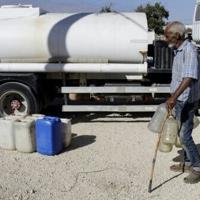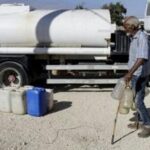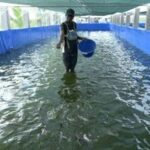In the coastal village of Beddouza in western Morocco, locals are using mobile desalination stations to combat the persistent drought, drawing water from the Atlantic Ocean.
Since 2023, 44 desalination stations known as “monobloc” have been built in Morocco. These compact, transportable units have been essential in fighting the effects of climate change.
The clean water produced is distributed to remote areas using tanker trucks, as the country faces its worst drought in nearly four decades.
Karim, a 27-year-old fisherman in the village, expressed surprise and gratitude for the availability of desalinated water in their area, as dozens gathered to collect water.
Hassan Kheir, a 74-year-old villager, described the mobile stations as a blessing, especially since the region’s groundwater has depleted.
Thanks to three monobloc desalination stations, around 45,000 people in Beddouza now have access to drinking water from the ocean, with a potential coverage radius of up to 180 kilometers.
With dams nearly depleted and water tables drying up, around three million people in rural Morocco urgently require drinking water. The country plans to build an additional 219 desalination stations to address this crisis.
Monobloc stations can produce up to 3,600 cubic meters of drinking water per day, making them a highly effective solution for water distribution.
In addition to these stations, larger desalination plants are being constructed in cities like Casablanca to meet higher water demands.
– ‘Race against time’ –
By 2040, Morocco is expected to face severe water stress, prompting the country to invest in desalination for water security.
Residents in Beddouza are more fortunate than those in other areas, like Al-Massira, where the second-largest dam in the country has almost dried up.
The overall dam fill rate in Morocco currently averages 28 percent, but it is projected to decrease due to persistent drought.
Desalination is seen as a crucial solution to address the water scarcity issues in the country, with a goal to provide more than 1.7 billion cubic meters of water annually by 2030.
The agriculture sector, which heavily depends on water resources, is also at risk due to water shortage, threatening both employment and export levels.
Authorities in Safi are urgently working to expand desalination plants to provide water for more residents, with plans to serve cities like Marrakesh in the near future.
isb-kao/cgo/fka/bou/jsa/rsc





